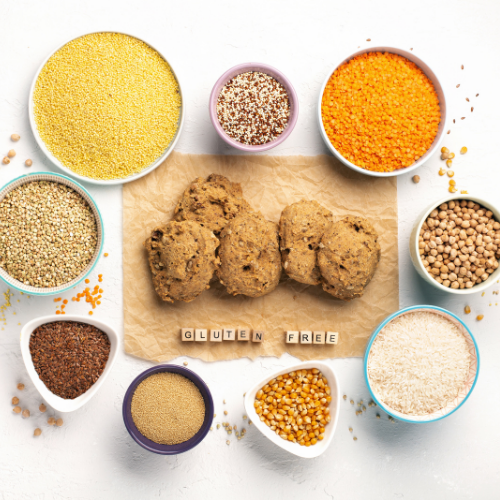 Coeliac disease is an autoimmune condition of the small bowel caused by a reaction to gluten, which is found in wheat, rye and barley but there are a number of common myths about Coeliac Disease, and it’s time that we put them to bed.
Coeliac disease is an autoimmune condition of the small bowel caused by a reaction to gluten, which is found in wheat, rye and barley but there are a number of common myths about Coeliac Disease, and it’s time that we put them to bed.
It is a rare condition
Not true. In fact, research shows that the condition affects one in 100 people in the UK, making it far more common than originally thought. Diagnosis is a big problem though and research suggests that there are around 500,000 people who are suffering from the condition but have not yet been diagnosed. Put simply, coeliac disease is not rare.
It is a food allergy
It is neither a food allergy nor an intolerance. The condition is actually an autoimmune disease. Gluten consumption damages the lining of the small intestine in coeliac disease, whilst other parts of the body can also be affected.
Small amounts of gluten won’t hurt
Gluten, even in trace levels, can be harmful to people suffering with coeliac disease. As a result, it is critical to take precautions to avoid gluten cross-contamination, and you can achieve this by following the below steps:
- keep cooking utensils separate during food preparation and cooking
- avoid frying food in the same oil that has previously been used to cook foods which contain gluten
- use a clean grill, separate toaster or toaster bags to make gluten free toast
- use separate breadboards and wash surfaces thoroughly
- use separate condiments like jam, butter, mustard and mayonnaise
Do you think that your child may have coeliac disease? If so, we can help!
Please contact us to book an appointment for your child to undertake investigations at Paediatric Gut Investigation Clinic. We are based at Spire Gatwick Park Hospital in Horley, Medwyn Centre in Dorking Surrey, and Maidstone and Tunbridge Wells NHS Trust in Kent.
